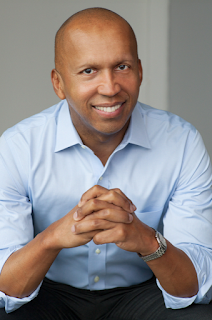-50-60% of all young men of color are in jail or prison or on probation or parole.
Some of the additional things he talked about:
“The opposite of poverty is justice. Germany can’t have the death penalty because of their history. Could you imagine if they did and it was disproportionately Jews that were receiving it?”
“We have a system of justice in this country that treats you much better if you’re rich and guilty than if you’re poor and innocent. Wealth, not culpability, shapes outcomes. And yet, we seem to be very comfortable. The politics of fear and anger have made us believe that these are problems that are not our problems. We’ve been disconnected.”
“My state of Alabama, like a number of states, actually permanently disenfranchises you if you have a criminal conviction. Right now in Alabama 34% of the black male population has permanently lost the right to vote. We’re actually projecting in another 10 years the level of disenfranchisement will be as high as it’s been since prior to the passage of the Voting Rights Act. And there is this stunning silence.”
“We have a hard time talking about race, and I believe it’s because we are unwilling to commit ourselves to a process of truth and reconciliation.”
“There is no disconnect around technology and design that will allow us to be fully human until we pay attention to suffering, to poverty, to exclusion, to unfairness, to injustice.”
“…ultimately, our humanity depends on everyone’s humanity”
t0525x2915awh
Bryan Stevenson: We Need to Talk about an Injustice
Equal Justice Initiative
Bryan Stevenson.com
Bryan Stevenson: Equal Justice Initiative
True Worship: Acts of Justice Culminating into a Third Great Awakening
Stunning Interview with Dr. Joe Martin: Authentic Conversation Regarding the Need to Minister to MEN
C1H2U3R4C5H6 C1I2V3I4L5





